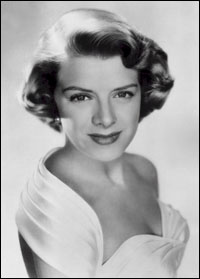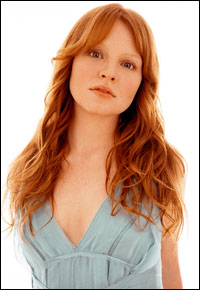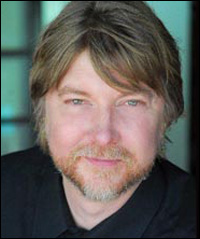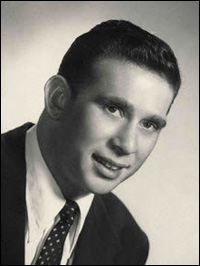
*
The brightest paper valentine
Has nothin' on this heart of mine.
In spite of me,
It's singing, "Gee,
It's good to be alive."
I figured me a hopeless case.
I thought a smile would break my face,
But all along
I figured wrong.
It's good to be alive.
There's cruel irony in the fact that the man who wrote those heart-swelling words and attached them to a lovely, lilting swirl of music would one day end his own life.
"It's Good To Be Alive" is from the first score ever written by Bob Merrill. Back then (1956), it was for movies, not Broadway — a musical version of Anna Christie for Doris Day called "A Saint She Ain't," but, after four failed screenplays, M-G-M bailed.
A great score was going to waste, Day complained to George Abbott, who was then directing her in the film "The Pajama Game." He gave it a listen and followed that with a fast green light to Broadway where it arrived May 14, 1957, as New Girl in Town, a star vehicle for Gwen Verdon, who gave her third Tony-winning performance. Merrill used the back door of pop music to get to Broadway legitimacy, penning gold records for Patti Page ("How Much Is That Doggie in the Window?"), Eileen Barton ("If I Knew You Were Comin', I'd've Baked a Cake"), Arthur Godfrey ("Candy and Cake"), Jimmie Rodgers ("Honeycomb"), Sarah Vaughan ("Make Yourself Comfortable"), Guy Mitchell ("My Truly, Truly Fair," "She Wears Red Feathers and a Huly Huly Skirt," "Sparrow in the Treetop" and "Belle, Belle, My Liberty Belle"), Rosemary Clooney ("Mambo Italiano"), Sammy Kaye ("Walkin' to Missouri"), Perry Como ("Tina Marie") and Freddy Martin ("Why Does It Have to Rain on Sunday").
| |
 |
|
| Merrill penned "Mambo Italiano" for Rosemary Clooney |
Seventeen hits in his first three years was pretty good hitting for an Atlantic City-born fellow who could not read music or play a musical instrument. Everything was composed on a toy xylophone that had numbers on the keys. It cost him $1.98 at the five-and-dime. He'd tap out a tune and take the numbers he'd written down to someone who could play the piano to transcribe. When his royalties reached $250,000, he treated himself to a $6.98 toy xylophone, which he used for the remainder of his career.
A primal practitioner of the big Broadway sound, Merrill had an advanced (if not downright addictive) sense of melody and an infallible ability to hook his audience.
Only ten of his musicals made it to Broadway, and that's counting Breakfast at Tiffany's, which technically closed in previews, and the two uncredited songs which he added to Jerry Herman's Hello, Dolly! ("Elegance" and "Motherhood"). Nine of the ten were movies before he made them into musicals; the first two of these originated as Eugene O'Neill plays (the aforementioned Anna Christie/New Girl in Town and Ah, Wilderness!/Take Me Along). The shows without any cinematic roots whatsoever — Prettybelle with Angela Lansbury and The Prince of Grand Street with Robert Preston — wound up sinking out of town during tryouts, with their precious star cargo aboard.
Other movies that Merrill turned into musicals were "Lili" (Carnival!) and "The World of Henry Orient" (Henry, Sweet Henry). With composer Jule Styne, he supplied lyrics only for three more (Funny Girl, Sugar and The Red Shoes) — plus two perennial holiday TV specials ("Mr. Magoo's Christmas Carol" and "The Dangerous Christmas of Red Riding Hood").
| |
 |
|
| Lauren Ambrose will star in the new Broadway-bound production of Funny Girl. | ||
| photo by Sam Handel |
If that be the case, then a trio of ex-execs from the Pasadena Playhouse — producer Jayson Raitt, book writer Duane Poole and music director Brad Ellis — is poised to pounce with this massive Merrill medley they have work-shopped in Ithaca, NY, and now Dayton. At present, it's pointed toward other regionals for further refinement.
"My focus is partnering with theatres across the country to develop new musicals," said producer Raitt. "If a show of mine comes to New York or targets New York, that's fine — but most of what I am doing is developing shows with regional and stock theatres in mind. My philosophy is to create shows with a small cast and a known quantity — in this case, all these great songs — inexpensive shows that are easy to produce for theatres whose audiences know the songs. These are the songs my mom used to sing and I grew up listening to. His melodies, especially, are so infectious."
Initially, the show was to be about Bob Merrill, but so little was actually written on him that Raitt and Poole opted for a plot where characters are created out of existing songs — in this case, three divergent women who find themselves wrapped around a Manhattan piano bar on the same night, each with stories to sing.
"It seemed that Bob Merrill wrote for three very different types of women," Poole pointed out. "He wrote for the young Alice Playten kind of belters, the Anna Maria Alberghetti sort of ingénues and the Thelma Ritters with experience behind them.
"One character is getting married tomorrow, one is maybe getting divorced tomorrow and one who has just seen it all and has advice and ultimately finds a very unexpected romantic relationship. It's three love stories. The fourth character in the show is Henry, who plays the piano and interacts with them a bit. But primarily he serves for musical accompaniment and then, eventually, a romantic foil."
| |
 |
|
| Music director Brad Ellis |
"We're doing 'Winter Was Warm' from 'Mr. Magoo's Christmas Carol' as a female trio thinking back on a love they had in the past, and the harmony just sends chills.
"What we found was songs that hit the same emotion in the arc we were building, so we needed to make 'Sophie's choice': which one of these songs do we keep, and which ones do we set aside? We really couldn't keep them both. We didn't want it to look like we were chucking in every possible Bob Merrill song — although we'd love to. They had to serve the moment, which meant we often had to make hard decisions."
Ellis is, on both sides of the footlights, music man for the show. On stage, he's the piano-playing proprietor of Henry's, accompanying and interacting with the ladies (one more than others). Off stage, "I'm doing the arrangements, what we now call mash-ups — essentially, a medley. These are songs that are either directly in a row or we integrate two songs so you hear bits of both at the same time. I've always had an affinity for the classic heyday music of Broadway, and I do some of that on my 'day job' at 'Glee,' but not a lot so it's nice to spend a little more time in the '50s and '60s."
As soon as this gig concluded in Dayton, Ellis was on a plane to L.A. to resume shooting the Fox TV hit "Glee." (On screen, he has been the mute, scowling accompanist dressed in black since Episode One.) An imbalance of the upbeat is the risk of any compilation of Merrill music, so Ellis was careful to vary the moods. "The buoyant music is the first thing we think about with him, but he is also the guy who wrote 'People,'" he duly noted. "To me, 'Don't Rain on My Parade' — no matter how bright or uplifting it gets — the root is anger.
| |
 |
|
| A young Bob Merrill |
Today, Merrill is dimly and distantly remembered by the masses, but, according to Ellis, he is making subtle, subversive inroads back into the public consciousness via Fox TV's animated series "Family Guy." "The creator of that show, Seth MacFarlane, absolutely adores the old Broadway scores — specifically, Take Me Along. In the weirdest way, he will put these songs like 'But Yours' in this pop-culture show. 'With me, you see no immature or callow youth' — he's put that in 'Family Guy.' You have 16-year-old kids humming Bob Merrill songs, and they have no idea who he is."
At last count, there were 43 songs in Love Makes the World Go 'Round — a half dozen more than We're Home, the 1984 Merrill songbook show he personally supervised at Off-Broadway's Vineyard Theatre. It was the Vineyard that presented his last musical, Hannah . . . 1939 — his first show in 20 years.
Merrill's vaultingly melodic style fell out of favor and fashion after the famous Breakfast at Tiffany's fiasco, and he never regained his professional footing. In the mid-'70s, following an uninterrupted run of grinding failures, he took up screenwriting (for Diana Ross' "Mahogany" and Rod Steiger's "W. C. Fields and Me").
Plagued by depression and faced with the prospect of spending the rest of his days in a wheelchair, the 74-year-old Merrill drove himself to an isolated spot in Culver City on Feb. 17, 1998, and shot himself. His legacy, rich in melody, lingers on.











